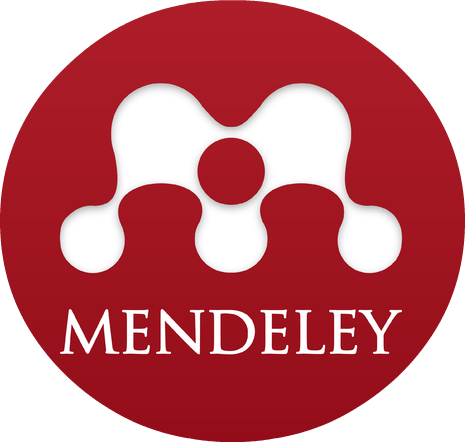Dilema Etik di Rumah Sakit saat Keterbatasan Sumber Daya dalam Pandemi COVID-19
 Abstract Views:
1793 times
Abstract Views:
1793 times
 PDF Downloads:
3747 times
PDF Downloads:
3747 times
Abstract
Abstract—COVID-19 has induced a global health problem with the impact to different aspects of human life. If numbers of patients are increasing beyond the healthcare capacity, the constraint of resources will stimulate ethical dilemma. In hospitals, the availability of drug, hospital beds, trained health professionals, and personal protective equipment are not enough to response patients’ needs. To face this condition, health professionals and hospitals need ethical guidance to allocate resources. This article aims to discuss the guides that are available in the international literature and to recommend Advanced Care Planning as an additional measure to manage the scarcity or resources. The communal culture or Indonesia may contribute to the ethical challenges through the ‘in-group’ and ‘out-group’ phenomenon.
Keywords: COVID-19, resource allocation, ethical dilemma
Abstrak—Pandemi COVID-19 telah menyebabkan masalah kesehatan global yang berdampak ke berbagai aspek kehidupan manusia. Jika angka penderita melebihi kapasitas sistem layanan kesehatan, terjadi keterbatasan sumber daya yang akan menimbulkan dilema etik. Di rumah sakit, ketersediaan obat, tempat tidur, tenaga kesehatan terlatih, alat pelindung diri tidak cukup untuk merespons kebutuhan pasien. Untuk menghadapi kondisi ini, tenaga kesehatan dan rumah sakit membutuhkan panduan etika untuk mengalokasikan sumber daya. Artikel ini bertujuan untuk mendiskusikan panduan-panduan yang ada di internasional serta mengusulkan Advanced Care Planning sebagai pendekatan tambahan dalam mengelola keterbatasan sumber daya. Budaya komunal di Indonesia dapat menambah tantangan etika di Indonesia melalui fenomena ‘dalam’ dan ‘luar’ kelompok.
Kata kunci: COVID-19, alokasi sumber daya, dilema etik
Downloads
References
Antommaria, A.H.M. et al. (2020) ‘Ventilator Triage Policies During the COVID-19 Pandemic at U.S. Hospitals Associated With Members of the Association of Bioethics Program Directors’, Annals of Internal Medicine, 173(3), pp. 188–194. doi:10.7326/M20-1738.
Atalan, A. (2020) ‘Is the lockdown important to prevent the COVID-19 pandemic? Effects on psychology, environment and economy-perspective’, Annals of Medicine and Surgery, 56, pp. 38–42. doi:10.1016/j.amsu.2020.06.010.
Beauchamp, T.L. and Childress, J.F. (2013) Principles of Biomedical Ethics. 7th edn. Oxford University Press.
Bertens, K. (2011) Etika Biomedis. Yogyakarta: Kanisius.
Brinkman-Stoppelenburg, A., Rietjens, J.A. and van der Heide, A. (2014) ‘The effects of advance care planning on end-of-life care: A systematic review’, Palliative Medicine, 28(8), pp. 1000–1025. doi:10.1177/0269216314526272.
Cappelen, A.W. and Norheim, O.F. (2006) ‘Responsibility, fairness and rationing in health care’, Health Policy, 76(3), pp. 312–319. doi:10.1016/j.healthpol.2005.06.013.
Carr, D. and Luth, E.A. (2017) ‘Advance Care Planning: Contemporary Issues and Future Directions’, Innovation in Aging, 1(1). doi:10.1093/geroni/igx012.
Chelen, J.S.C. et al. (2021) ‘US Ventilator Allocation and Patient Triage Policies in Anticipation of the COVID-19 Surge’, Health Security [Preprint]. doi:10.1089/hs.2020.0166.
Curtis, J.R., Kross, E.K. and Stapleton, R.D. (2020) ‘The Importance of Addressing Advance Care Planning and Decisions About Do-Not-Resuscitate Orders During Novel Coronavirus 2019 (COVID-19)’, JAMA [Preprint]. doi:10.1001/jama.2020.4894.
Einav, S. et al. (2014) ‘Surge Capacity Logistics: Care of the Critically Ill and Injured During Pandemics and Disasters: CHEST Consensus Statement’, CHEST, 146(4), pp. e17S-e43S. doi:10.1378/chest.14-0734.
Emanuel, E.J. et al. (2020) ‘Fair Allocation of Scarce Medical Resources in the Time of Covid-19’, New England Journal of Medicine, 0(0), p. null. doi:10.1056/NEJMsb2005114.
Gilardino, R.E. (2020) ‘Does “Flattening the Curve” Affect Critical Care Services Delivery for COVID-19? A Global Health Perspective’, International Journal of Health Policy and Management, 9(12), pp. 503–507. doi:10.34172/ijhpm.2020.117.
Kusmaryanto, C.B. (2015) Bioetika. Jakarta: Kompas Gramedia.
Mahendradhata, Y. et al. (2021) ‘The Capacity of the Indonesian Healthcare System to Respond to COVID-19’, Frontiers in Public Health, 9, p. 649819. doi:10.3389/fpubh.2021.649819.
Norisue, Y. et al. (2021) ‘Allocation of Mechanical Ventilators During a Pandemic’, Chest, 159(6), pp. 2494–2502. doi:10.1016/j.chest.2021.01.015.
Piscitello, G.M. et al. (2020) ‘Variation in Ventilator Allocation Guidelines by US State During the Coronavirus Disease 2019 Pandemic: A Systematic Review’, JAMA Network Open, 3(6), p. e2012606. doi:10.1001/jamanetworkopen.2020.12606.
Rhee, J.J., Zwar, N.A. and Kemp, L.A. (2013) ‘Advance care planning and interpersonal relationships: a two-way street’, Family Practice, 30(2), pp. 219–226. doi:10.1093/fampra/cms063.
Robert, R. et al. (2020) ‘Ethical dilemmas due to the Covid-19 pandemic’, Annals of Intensive Care, 10(1), p. 84. doi:10.1186/s13613-020-00702-7.
Truog, R.D., Mitchell, C. and Daley, G.Q. (2020) ‘The Toughest Triage — Allocating Ventilators in a Pandemic’, New England Journal of Medicine, p. NEJMp2005689. doi:10.1056/NEJMp2005689.
White, D.B. and Lo, B. (2020) ‘A Framework for Rationing Ventilators and Critical Care Beds During the COVID-19 Pandemic’, JAMA, 323(18), pp. 1773–1774. doi:10.1001/jama.2020.5046.
WHO (2016) Guidance for managing ethical issues in infectious disease outbreaks. Switzerland.
Williams, I. (2015) ‘Receptive rationing: reflections and suggestions for priority setters in health care’, Journal of Health Organization and Management, 29(6), pp. 701–710. doi:10.1108/JHOM-09-2014-0162.

This work is licensed under a Creative Commons Attribution-ShareAlike 4.0 International License.
- Articles published in Keluwih: Jurnal Sosial dan Humaniora are licensed under a Creative Commons Attribution-ShareAlike 4.0 International license. You are free to copy, transform, or redistribute articles for any lawful purpose in any medium, provided you give appropriate credit to the original author(s) and the journal, link to the license, indicate if changes were made, and redistribute any derivative work under the same license
- Copyright on articles is retained by the respective author(s), without restrictions. A non-exclusive license is granted to Kluwih: Jurnal Sosial dan Humaniora to publish the article and identify itself as its original publisher, along with the commercial right to include the article in a hardcopy issue for sale to libraries and individuals.
- By publishing in Keluwih: JSH, authors grant any third party the right to use their article to the extent provided by the Creative Commons Attribution-ShareAlike 4.0 International license.

 DOI:
DOI:


 Digital Object Identifier
Digital Object Identifier Mendeley
Mendeley


